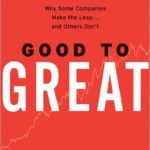In order to be rich, start by becoming less poor. Follow these steps:
- Optimize your credit cards
- By using credit, you can improve your credit score. Just make sure you:
- Pay off your card every month
- Get all fees waived with one phone call
- negotiate a lower APR (even when paying your balance in full)
- Keep the accounts open and active for years (closing them actually hurts your credit score)
- Ask for a credit limit increase (but keep your total use of that credit low)
- Ask for and use rewards. Your card has benefits like warranties, car rental insurance, trip cancellation insurance that many people don’t read the fine print.
- Banks
- Online checking and saving accounts are now (and have been for a while) as good as brick and mortar banks. They’re both FDIC insured, which means you won’t lose your money. And they can give you a better interest rate since they don’t have the high overhead that other banks have.
- Investing
- 401k – If you have a salaried position congrats. Max out how much your company matches, which is pre-taxed, and which you’ll take out at age 59 1/2. Your maximum contribution is at $15,500 per year so make the most of it.
- Roth IRA – You can max this investment out at $5,000 per year, which is also pre-taxed.
- Conscious spending
- Being cheap versus frugal is determining the difference of value over price.
- Lower your monthly spending by understanding your:
- Fixed costs (50-60% – rent/mortgage, utilities, cell phone, medical insurance, car payment, transportation, loans, groceries, clothes, internet/cable)
- Long-term investments (5-10% – 401k, Roth IRA)
- Savings goals (5-10% – save for Xmas gifts, vacations, wedding, house payments)
- What’s left is spending money! (20-25%)
Determine what goals you are actually saving for. Have a tangible goal and put all your money and decisions into focus.
- Make transfers automatic. Pay yourself 1st. Set bills, 401k, IRA, savings to be dished out on an automatic basis, so it’s already set.
- Investments. Invest in low-cost, diversified funds for the long term. Index funds are better than mutual funds. (read a Random Walk Down Wall Street).
- Stocks are volatile, highly controlled, inconvenient.
- Bonds are illiquid
Asset allocation is more important than your actual investments. Allocation balances your investments across classes while diversification puts your money deep into one type of platform.
Lifecycle funds are actually a fund of funds, automatically diversifying your funds including stocks, bonds and is dependent upon your age.
If you have no clue, just copy the Swensen model based on the investor who handles Yale’s endowment.
Expense ratios are the amount of money (in fees) to own a fund.
Warren Buffett says, “Be fearful when others are greedy and greedy when others are fearful.”

 Influence: The Psychology of Persuasion – Robert Cialdini
Influence: The Psychology of Persuasion – Robert Cialdini